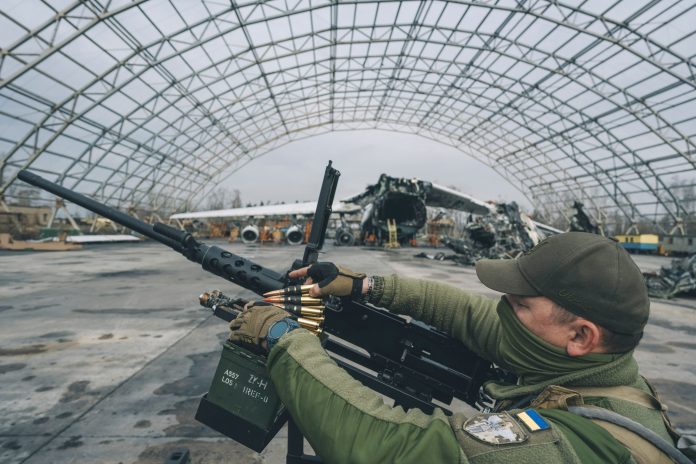NATO foreign ministers are meeting in Brussels on Wednesday amid growing concern over the ongoing military conflict in Ukraine. They are expected to discuss a proposal to create a 100 billion euro fund to support Ukraine’s armed forces, RFI reports.
NATO Secretary General Jens Stoltenberg’s proposal would allow the alliance to play a greater role in coordinating the supply of arms, ammunition and equipment to Ukraine. The alliance’s updated statement reiterated that it would continue to provide Ukraine with “unprecedented support to help defend its fundamental right to self-defence”.
However, Kyiv has said this is not enough. The country is severely short of weapons and troops, holding back the offensive of Russian forces.
The US, a leading NATO member, is a key military backer of Ukraine, but the €55.8bn aid package has been held up in Congress. Ahead of the talks in Brussels, US Secretary of State Antony Blinken renewed his appeal to Congress for aid. Blinken said during a visit to an arms factory in Paris:
“We are at a critical moment where it is absolutely essential to get Ukrainians what they continue to need to defend themselves, particularly when it comes to munitions and air defences.”
Ukrainian President Volodymyr Zelensky, speaking to Congress earlier this week, said that if Ukraine does not receive US military aid soon, Ukrainian forces will be forced to cede new territories to Russia.
The military conflict in Ukraine has radically altered the alliance. As a result of the outbreak of hostilities in 2022, Finland and Sweden, countries that were previously neutral, have joined the alliance.
NATO seems more united than it was five years ago, when French President Emmanuel Macron warned in an interview with The Economist that it was “becoming brain-dead”. The US, then led by Donald Trump, was showing signs of “turning its back on us”, Macron told the weekly.
But despite the current unity and willingness to help, there is a real possibility that another Trump administration will lead NATO next year and create new problems for Ukraine. Even today, when the alliance is stronger and more united than ever, it is doubtful that all its members will be willing to continue supplying Ukraine with arms and ammunition.
According to the French Ministry of Defence, the total value of French military equipment supplied to Ukraine until 31 December 2023 was €2.6 billion. Paris has contributed another €1.2 billion to the European Peace Fund (EPF), bringing the total to €3.8 billion.
This includes 445 night vision goggles, 6 TRF1 Howitzers, 30 Caesar guns and an unspecified number of ground-to-air defence Scalp, Mistral, Aster and Crotale missiles as well as 1.74 million 12.7mm cartridges, 1.1 million small arms ammunition and other equipment.
According to statistics released by the Washington-based Council on Foreign Relations, France’s contribution is far inferior to US aid to Kyiv. The US provided 69.1 billion euros in funding and equipment, 18 times more than the amount provided by Paris.
At the same time, data from the Kiel Institute for the World Economy shows that the EU and its institutions topped the list in terms of military, humanitarian and financial state support for Ukraine. It is followed by the US, Germany, the UK and Denmark.
The two-day NATO meeting is partly a preparation for a summit of NATO heads of state in Washington in July. On 4 April, NATO will celebrate the 75th anniversary of its existence.
